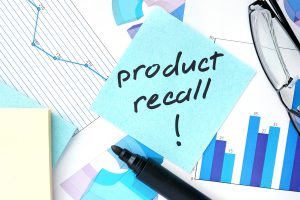The Great Product Recalls Of History
 Michael Babboni
Recalls
The business and industrial news over the course of 2015 has been quite hectic, and not always in a good way. One of the big stories that affects both the business and consumer side is product recalls, with companies like Volkswagen and Takata featuring prominently for products that don’t work as advertised. Sometimes these product recalls, as in the case of Volkswagen, are simply because a product doesn’t do what it is supposed to, and the deception to consumers is the main point of controversy. Other times, as with the Takata air bags incident, the failure of the product can actually result in injury and issues of personal safety are now involved.
Michael Babboni
Recalls
The business and industrial news over the course of 2015 has been quite hectic, and not always in a good way. One of the big stories that affects both the business and consumer side is product recalls, with companies like Volkswagen and Takata featuring prominently for products that don’t work as advertised. Sometimes these product recalls, as in the case of Volkswagen, are simply because a product doesn’t do what it is supposed to, and the deception to consumers is the main point of controversy. Other times, as with the Takata air bags incident, the failure of the product can actually result in injury and issues of personal safety are now involved.Unfortunately for consumers, this is nothing new. There have been occasions in the past where far more serious product recalls have occurred, and here are a few of the most notable ones in consumer history.
China’s Sanlu Milk Scandal
In 2008, Chinese authorities finally had no choice but to address the corruption in some segments of China’s food industry. Despite advance warning from other companies and even news reports, Chinese dairy companies managed to cover up the fact that they were adding melamine to dairy products. Melamine is a type of plastic normally used in counter tops and dry erase boards, but when added to milk and infant formula, the nitrogen in it can act as a counterfeit protein, allowing manufacturers to dilute milk while still passing conventional tests to make sure the milk meets minimum nutritional requirements.
Six infants died as a result of kidney stones formed due to melamine in their baby formula. Another 54,000 were hospitalized due to melamine contamination. In total, it was estimated that over 300,000 Chinese babies were in some way impacted by the Sanlu Dairy Company’s attempt to increase profitability by cheating the system. There was a massive recall on Sanlu dairy products and to this day, many Chinese families prefer to buy their dairy products as imports from other countries, for understandable reasons.
Tylenol Recall
This particular recall is historic not just for the unusual reason it started, but also for how it changed the way we buy and use off-the-shelf medication. It is because of the Tylenol recall in 1982 that we now have safety seals on pill bottles to let us know that the pills we are buying are unopened and exactly as manufactured by the company.
Unlike many product recalls, the 1982 product recall of Tylenol was not actually the fault of Johnson & Johnson, the company that owns the Tylenol brand. Seven people in Chicago all died within a few days of each other after taking Extra Strength Tylenol. It was later discovered that each bottle of Tylenol involved in each death had been poisoned on store shelves with the addition of cyanide.
Johnson & Johnson took immediate action, recalling over 31 million bottles nationwide, halting all production, distribution and advertising of Tylenol, warning both hospitals and distributors of the danger, and redesigning their bottles with three layers of anti-tamper protection. In total, this cost the company over $100 million in expenses. Unlike many product recalls, Johnson & Johnson was widely praised for their aggressive, pro-consumer actions, and quickly regained consumer confidence in their product once the threat was handled.
The Ford Pinto Recall
The 1970s Ford Pinto recall is one of the first great corporate recalls to be so widely covered by the press and retain a high state of awareness with the general public. The Pinto model of automobile had a flaw in its engineering that only became apparent in the course of very specific accident conditions. Ford had designed the Pinto so that its fuel tank and connecting filler neck were close to the rear end of the car. In the event of a rear end collision, this connection between fuel tank and filler neck could be broken, resulting in fuel leaks and, unfortunately, explosions.
After 27 deaths related to the Pinto fuel tank defect, the National Highway Traffic Safety Administration ordered Ford to institute a recall on their car, something the company had, up until this point, been unwilling to do of its own accord. Ford had run a cost benefit analysis—which was later discovered and published by investigative reporters—that showed it would actually be cheaper to pay court and settlement costs for lawsuits relating to the Pinto, than it would be to recall and repair the Pinto itself. It was only after government intervention that the company finally did so for the safety of drivers around the country.
